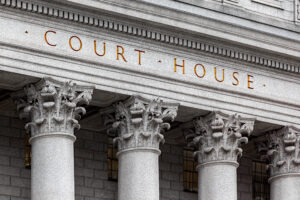
As discussed in our previous article: Is the Corporate Transparency Act Constitutional?, the constitutionality of the Corporate Transparency Act (“CTA”) has been challenged in several different cases. The first case to reach a result was National Small Business United v. Yellen, Case No. 5:22-cv-1448-LCB (C.D. Ala.) on March 1, 2024, which held that the CTA is unconstitutional, barring government enforcement against only the Plaintiffs in that action. The government appealed, and the Eleventh Circuit heard oral argument in late September 2024 but has not yet issued a ruling.
Several other cases have been pursued, including: Robert J. Gargasz Co. v. Yellen, No. 1:23-cv-02468 (N.D.Ohio) (case stayed on 4/17/2024 pending Eleventh Circuit’s ruling); Small Bus. Ass’n of Mich. v. Yellen, 1:24-cv-00314 (W.D. Mich.) (pending motions for summary judgment filed 8/9/2024 with 12/16/24 hearing); Taylor v. Yellen, No. 2:24-cv-00527 (D.C.Utah) (still in pleadings stage with pending motion to dismiss); Boyle v. Yellen, Case No. 2:24-cv-00081 (D. Maine) (pending motions for summary judgment filed 6/14/24 with 1/3/25 hearing); Firestone, et al. v. Janet Yellen, et al. Case No. 3:24-cv-1034-SI (D. Or.) (Court denied plaintiffs’ motion for preliminary injunction 9/9/24, and plaintiffs appealed to the Ninth Circuit); Community Ass’n Inst. v. Yellen, Case No. 24-cv-1597 (E.D. Va.) (Court denied plaintiffs’ motion for preliminary injunction on 10/24/24, and plaintiffs appealed to the Fourth Circuit).
In the Firestone and Community Association cases, the district courts denied plaintiffs’ requests for preliminary injunctions on the basis that the plaintiffs did not show a “likelihood of success on the merits” on their claim that the CTA is unconstitutional. The courts found there was a rational basis for regulating the activity, and the law governed the conduct of covered entities and impacted interstate commerce. In contrast, the NSBU case had determined that Congress had overstepped its Commerce Clause powers and violated the Necessary and Proper clause of Congress’ taxing powers.
Texas District Court Enters Preliminary Injunction
On December 3, 2024, a U.S. District Court in Texas granted the Plaintiff’s Motion for Preliminary Injunction, barring the government from generally enforcing the CTA and its regulations. Texas Top Cop Shop, Inc. v. Garland, Case no. 4:24-cv-478 (E.D. Tex.). Although the plaintiffs had requested only a narrow injunction covering the plaintiffs themselves, the Court concluded: “A nationwide injunction is appropriate in this case.” The Court enjoined enforcement of the CTA and its reporting rules, staying the January 1, 2025 filing deadline. “Neither may be enforced, and reporting companies need not comply with the CTA’s January 1, 2025 BOI reporting deadline pending further order of the Court.”
In reaching its conclusions, the Texas Court noted FinCEN’s own admissions that the CTA “will have a significant economic impact on a substantial number of small entities,” given the approximate 32.6 million existing entities and 5 million new reporting companies formed each year. FinCEN had also estimated that there would be a new cost to be borne by each reporting company, ranging from $85.14 to $2,614.87 per initial report, requiring professional expertise such as lawyers and accountants. The Court rejected the government’s arguments that the CTA’s de minimis compliance costs and burdens were insufficient; rather, the loss of First Amendment Freedoms “unquestionably constitutes irreparable injury.” (See Elrod v. Burns, 427 U.S. 347, 373 (1976).) “[I]f Plaintiffs must comply with an unconstitutional law, the bell has been rung. . . . The harm is irreparable.”
As for the constitutionality of the CTA, in its lengthy analysis, the Court agreed with the NSBU case that “the CTA does not regulate, by its text, a channel or instrumentality of commerce.” Further, it does not regulate an existing activity as required, but rather compels or creates a new activity. Moreover, “the CTA is a law enforcement tool – not an instrument calibrated to protect commerce; an exercise of police power, rather than a regulation of an activity which might impair commerce among the several states. This the Commerce Clause will not tolerate.” On the government’s assertion that authority for the CTA falls under the Necessary and Proper clause, the Court disagreed, since there was no enumerated power that could justify the CTA and Congress’ findings were not enough to overcome the state law authority to regulate companies. While the Court declined to issue a final ruling, it held the CTA and its rules “are likely unconstitutional.”
What Does a “Preliminary Injunction” Mean for the CTA?
A preliminary injunction is a Court order temporarily barring or restricting a party from acting or refraining from acting until further order of the Court. The Court in Top Cop Shop, Inc. enjoined the U.S. government from requiring businesses to report Beneficial Ownership Information (“BOI”) Reports until the Court can issue a final determination about the constitutionality of the CTA. This means that, until the Court orders otherwise, no businesses are required to file BOI Reports.
However, there are several ways in which the preliminary injunction could be lifted. First, the Texas District Court could reverse itself, ultimately finding that the CTA is, in fact, constitutional. A higher Court, such as the U.S. Court of Appeals or U.S. Supreme Court, could rule on constitutionality and overturn the Texas District Court’s decision, reversing the injunction. Alternatively, a Court within a specific jurisdiction, such as the Seventh Circuit Court of Appeals (including the State of Illinois), could enter an Order disagreeing with the Texas District Court’s imposition of an injunction, resulting in a split decision among circuits.
In the event the nationwide preliminary injunction is lifted for any reason, it is expected that businesses will have a short time (e.g., 30 days), to comply with the BOI Reporting rules.
Does My Business Need to File a BOI Report?
Every business should be aware of this new development before making the final decision whether and when to file its BOI Report. While the injunction was entered nationwide, it is only “preliminary” and subject to the Court’s final approval and/or an outcome on appeal. FinCEN it is still accepting BOI reports as of December 9, 2024, although guidance published in the past few days indicate compliance with the CTA is now “voluntary.” The government has indicated it will appeal the Texas Top Cop Shop decision as it did in National Small Business United. Further, no Court within the Seventh Circuit (which includes Illinois) has yet ruled on the constitutionality of the CTA.
According to the Texas Court’s injunction, businesses are, at least temporarily, not required to file BOI reports. However, the CTA imposes potential civil and criminal penalties for the failure to timely file, including penalties and prison time for “willful” failures. See a discussion of the potential consequences here: The Corporate Transparency Act: New Reporting Requirements for Businesses. It is up to each business and its beneficial owners to decide whether to file BOI reports given the potential consequences of not filing and the individual’s threshold for risk. For example, if the injunction is made permanent and confirmed by either Congress or the U.S. Supreme Court, no business will be required to file any further reports. However, if the injunction is lifted, businesses may be expected to comply within a specified time period of an unknown length.
Sandra Mertens
[email protected]

